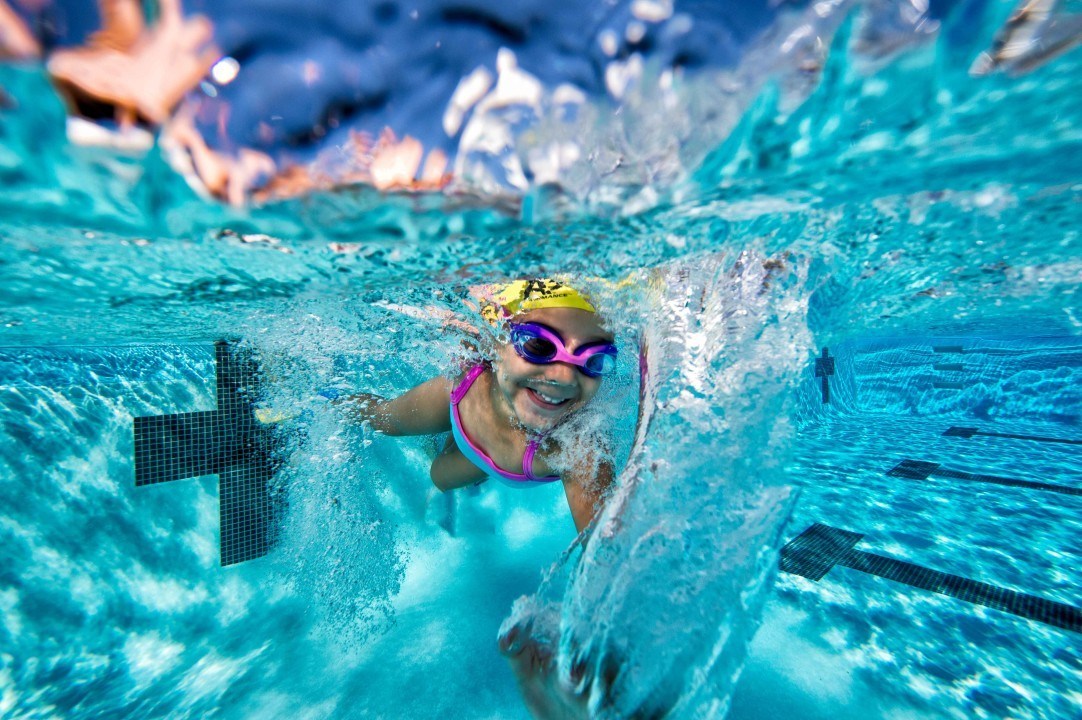Looking at the big picture of swim parenting—or being involved in any sport—is to allow our kids to experience and learn life lessons with supervision in a structured environment. Our kids have so much to gain being involved in youth sports including developing character. Our actions can add or detract from our kids’ experiences. I look at the pool as my children’s private area to explore their various roles in life, from athlete, student, teammate to growing into an individual with their own likes and desires. I learned to step back and let them fail, and learn from those tougher experiences. But, there are basic things we need to do as parents to help them succeed.
Here are nine basic tips to being a great swim parent:
ONE
Get your kids to practice on time and consistently. You’ll be teaching them that it’s important to be on time and to show up. Seriously, later in life those attributes will help them stand out from others. The kids coming in late and disrupting the group aren’t winning brownie points with the coach or teammates.
TWO
Make sure children get plenty of sleep and have nutritious meals and snacks. It’s impossible to be a great athlete and student when they are sleep deprived or not eating well.
THREE
Help them keep up with academics. There’s nothing more disappointing than having a star swimmer off the high school team because their GPA is too low. Don’t do their homework — instead ask if they have time carved out and they’re on top of assignments.
FOUR
Volunteer to help your team. By helping out the team, we’re showing that we value swimming. We help out at school because we value academics. Show them with your actions that you respect their hard work in the pool, too.
FIVE
Praise their efforts not results. When you see they’ve been working hard at something, say a few words that tell them you’ve noticed. Reinforce their effort and good sportsmanship.
SIX
Let them take ownership for swimming. Allow them to have more responsibility as they get older, like packing swim bags and snacks. Don’t take over with enthusiasm either. Follow their lead. It’s their sport, not ours.
SEVEN
Try not to put too much emphasis on their times, especially when they’re young. When we focus on times, we’re setting them up for disappointment and a feeling of failure. They may get a best time, or swim an IM for the first time without a DQ, but if they miss their target time, it can seem like a failure.
EIGHT
It’s so hard not to compare our children with their teammates or other swimmers, but try not to. Every child is different in terms of physical ability, maturity and development. Plus, they have different levels of desire and interest.
NINE
Support your coach. We need to trust our coach, or we shouldn’t be on the team. I know from experience that if I criticized a coach or teacher in front of my kids, they lost respect for that person. It made their experience counter-productive and more difficult than it needed to be. If you have issues with a coach, ask to meet or talk to a board member. Most problems can be corrected with communication.
What other basic tips for swim parents would you add to the list?
Elizabeth Wickham volunteered for 14 years on her kids’ club team as board member, fundraiser, newsletter editor and “Mrs. meet manager.” She’s a writer with a bachelor of arts degree in editorial journalism from the University of Washington with a long career in public relations, marketing and advertising. Her stories have appeared in newspapers and magazines including the Los Angeles Times, Orange County Parenting and Ladybug. You can read more parenting tips on her blog.
as board member, fundraiser, newsletter editor and “Mrs. meet manager.” She’s a writer with a bachelor of arts degree in editorial journalism from the University of Washington with a long career in public relations, marketing and advertising. Her stories have appeared in newspapers and magazines including the Los Angeles Times, Orange County Parenting and Ladybug. You can read more parenting tips on her blog.

#10 Encourage them to participate in other sports, music, dance, etc until THEY (not you) are ready to focus on swimming. That time may or may not ever come. That’s ok.
Participating in other sports and activities actually helps younger swimmers understand their bodies, creates cross body connections, etc. It also keeps everything fun. We have so many swimmers who are so awkward on land and in the water because they haven’t done anything other than swimmer.
Well said, especially #9. Sitting and watching practices it is disappointing to hear that a swimmer swam well because of their great ability, but the next week swam poorly because the coach “doesn’t know how to teach breasstroke.” What are we teaching swimmers about accountability? I like #8, too, but clubs and coaches can be complicit in this in overestimating the importance of times (at the expense of other less quantitative measures) especially for younger swimmers.